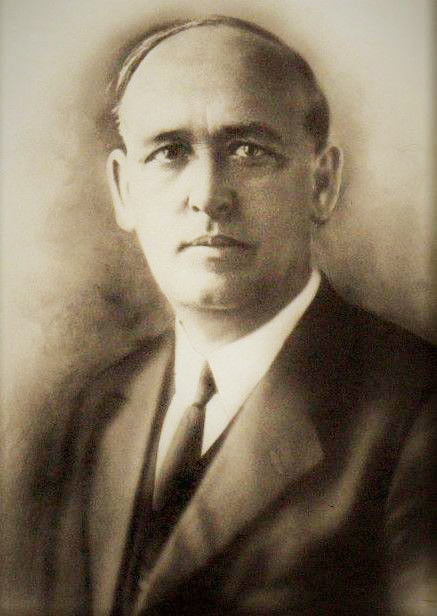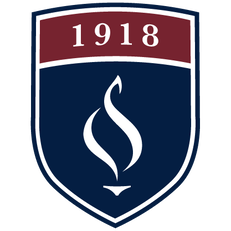Lee, Flavius Josephus

Flavius Josephus Lee (1875-1928) served as the second superintendent of the Bible Training School, now Lee University, from 1922-23.
Structural changes in the Church of God denomination in 1922 led to the creation of a three-man Executive Council. One of those three positions was the Superintendent of Education, and F.J. Lee was elected to fill that role, thus becoming the school's superintendent. Many years later, in 1947, the school would be renamed Lee College in his memory.
Lee was 47 years old and a native of neighboring Polk County, Tennessee. He was a respected leader in the Church of God and had served as pastor at North Cleveland Church. By this time the school had relocated its classes to the former sanctuary of North Cleveland Church.
The election of F.J. Lee as Superintendent was providential.
In 1923 the denomination experienced a division. A.J. Tomlinson and those loyal to him formed one group that eventually would become known as the Church of God of Prophecy. The others composed the second group, which continues to be known as the Church of God.
Among some of the issues that led to this (but perhaps not the most prominently discussed) surrounded A.J. Tomlinson, who had been named General Overseer for life by the Assembly. He had plans to begin the Faithful Standard Publishing Company and also to begin the United Bible Institute, which seemed to F.J. Lee and others to be in direct conflict with the church’s publishing operation and the Bible school already in place.
Had F.J. Lee not become the superintendent of the Bible School before the denomination’s division in 1923, it is liked the Bible school would have remained under the control of A. J. Tomlinson, as well as the very successful correspondence Bible course, which began in 1919 for students who could not travel to Cleveland– and had grown to 788 students within its first year. It could have changed the entire future of the what we know today as Lee University. As a result of the split, student enrollment experienced a decline the following year.
F.J. Lee, essentially, had helped save the school. As a result of the need for a new general overseer following the church split, F.J. Lee was selected as the leader of the sponsoring denomination, but not for life.
Of that difficult time, Nora Chambers later remembered, “It was a dark day when Brother Lee said it looked like the school would have to close. But we went to prayer and got our heads together to help answer our own prayers. Sister Lee gave her canned goods and bought no clothes that year. Sister Garner, the matron, did the cooking for no pay.” The school did survive, and would see brighter days ahead.
/ L.F. Morgan
Structural changes in the Church of God denomination in 1922 led to the creation of a three-man Executive Council. One of those three positions was the Superintendent of Education, and F.J. Lee was elected to fill that role, thus becoming the school's superintendent. Many years later, in 1947, the school would be renamed Lee College in his memory.
Lee was 47 years old and a native of neighboring Polk County, Tennessee. He was a respected leader in the Church of God and had served as pastor at North Cleveland Church. By this time the school had relocated its classes to the former sanctuary of North Cleveland Church.
The election of F.J. Lee as Superintendent was providential.
In 1923 the denomination experienced a division. A.J. Tomlinson and those loyal to him formed one group that eventually would become known as the Church of God of Prophecy. The others composed the second group, which continues to be known as the Church of God.
Among some of the issues that led to this (but perhaps not the most prominently discussed) surrounded A.J. Tomlinson, who had been named General Overseer for life by the Assembly. He had plans to begin the Faithful Standard Publishing Company and also to begin the United Bible Institute, which seemed to F.J. Lee and others to be in direct conflict with the church’s publishing operation and the Bible school already in place.
Had F.J. Lee not become the superintendent of the Bible School before the denomination’s division in 1923, it is liked the Bible school would have remained under the control of A. J. Tomlinson, as well as the very successful correspondence Bible course, which began in 1919 for students who could not travel to Cleveland– and had grown to 788 students within its first year. It could have changed the entire future of the what we know today as Lee University. As a result of the split, student enrollment experienced a decline the following year.
F.J. Lee, essentially, had helped save the school. As a result of the need for a new general overseer following the church split, F.J. Lee was selected as the leader of the sponsoring denomination, but not for life.
Of that difficult time, Nora Chambers later remembered, “It was a dark day when Brother Lee said it looked like the school would have to close. But we went to prayer and got our heads together to help answer our own prayers. Sister Lee gave her canned goods and bought no clothes that year. Sister Garner, the matron, did the cooking for no pay.” The school did survive, and would see brighter days ahead.
/ L.F. Morgan
